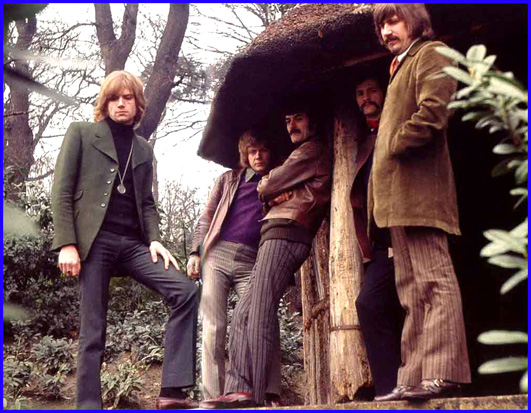
Few songs have transcended their time and genre as effortlessly as “Nights in White Satin” by The Moody Blues. Originally released in 1967 as part of their album Days of Future Passed, this classic has carved its place in musical history as one of the most evocative and timeless pieces of music. Blending elements of rock, classical, and poetic lyricism, “Nights in White Satin” remains a masterpiece, capturing listeners with its haunting melody, profound lyrics, and rich instrumentation.
The album Days of Future Passed was groundbreaking for its time. Released during the height of the psychedelic rock era, The Moody Blues took a bold leap into uncharted territory by fusing rock with classical music. The album is a conceptual journey through a single day, with each track representing a different part of the day, from dawn to night. Featuring orchestral arrangements performed by the London Festival Orchestra, this is one of the earliest examples of a rock band collaborating with a full orchestra.
“Nights in White Satin” serves as the album’s grand finale, embodying the melancholy and introspection of nighttime. The song’s placement at the end of the album underscores its emotional depth, acting as a reflection on love, loss, and the passage of time. Its orchestral grandeur and poetic narrative have cemented its place as one of the most celebrated tracks in rock history.
From the moment “Nights in White Satin” begins, its soundscape draws the listener into an ethereal world. The lush orchestral strings open the piece, setting a haunting tone for the introspective journey ahead. The London Festival Orchestra’s contribution provides sweeping, cinematic layers that elevate it beyond a typical rock ballad.
Justin Hayward’s acoustic guitar forms the backbone of the song, delivering soft, emotive strumming that complements the orchestral backdrop. His delicate yet profound guitar work adds an intimate feel. Prominent throughout is the mellotron, an early keyboard instrument producing haunting, flute-like sounds, signature to The Moody Blues’ dreamy style.
The piano offers subtle harmonic depth, underscoring the melancholic mood, while Graeme Edge’s understated drumming provides a steady, heartbeat-like rhythm, grounding the ethereal layers. Hayward’s tender and impassioned vocals carry the weight of poetic lyrics, amplifying themes of longing and reflection, making every line deeply personal.
The lyrics, penned by a 19-year-old Justin Hayward, are a cornerstone of the song’s allure. Capturing the raw emotion of unrequited love and existential longing, lines like “Nights in white satin, never reaching the end” and “Letters I’ve written, never meaning to send” evoke universal yearning. The refrain, “Cause I love you, yes, I love you,” is heartfelt and sincere. The haunting spoken-word segment near the end — a recitation of drum legend Graeme Edge’s poem “Late Lament” — adds a philosophical depth to the reflective tone.
“Nights in White Satin” exemplifies the artistry defining The Moody Blues. The seamless blend of orchestral and rock elements was revolutionary, inspiring generations. Guitar, piano, and mellotron create a lush, immersive experience that remains fresh over five decades later. This craftsmanship cements The Moody Blues as pioneers bridging rock and classical music.
Enduring in popularity, the song is a staple among the greatest love songs and classic rock ballads, often featured in soundtracks, tributes, and even wedding playlists — a testament to its cultural significance.
For those mesmerized by its emotional depth and orchestral beauty, similar songs to explore include “A Whiter Shade of Pale” by Procol Harum, “Tuesday Afternoon” by The Moody Blues, “The Sound of Silence” by Simon & Garfunkel, and iconic Led Zeppelin tracks like “Stairway to Heaven” and “Kashmir.”
Over fifty years since its release, “Nights in White Satin” continues to captivate worldwide audiences, paving the way for the symphonic rock genre. Its profound lyrics, haunting melody, and lush instrumentation embody the transformative power of music.
As Justin Hayward once shared, “This song was my young heart’s attempt to touch on the deep emotions we all carry but often can’t express. It’s timeless because it speaks to that common human experience.” The legacy of “Nights in White Satin” is undeniable — a timeless symphony echoing through generations, forever etched in the chronicles of music history.
